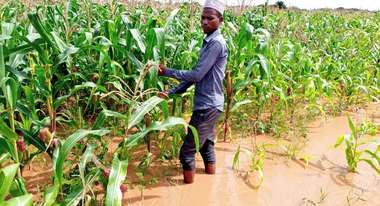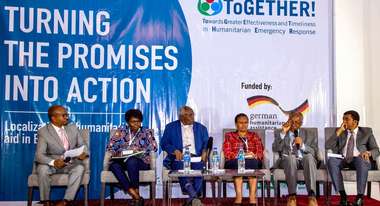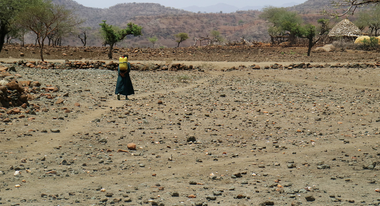Surviving drought with water and food aid
Ongoing drought is plaguing the Horn of Africa. In southern Ethiopia, Welthungerhilfe (WHH) is helping people to survive it.
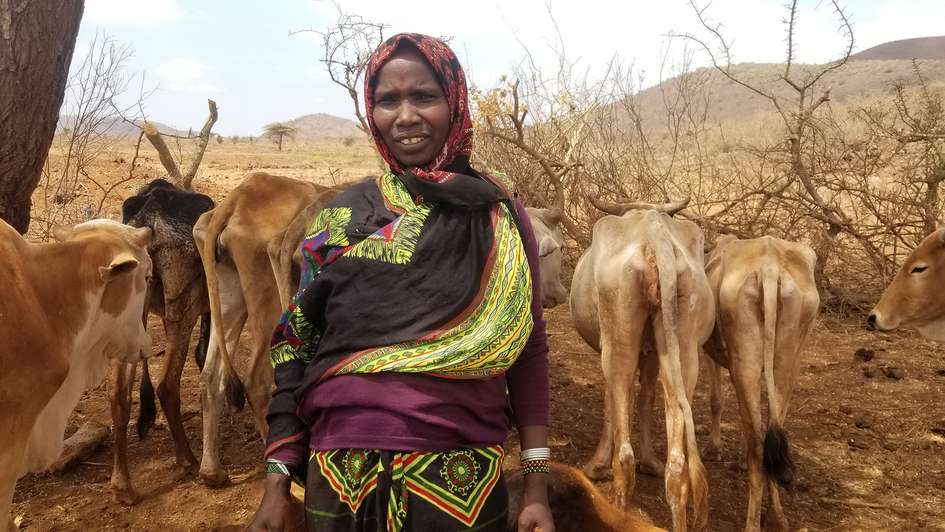
Ware Tuka is a single mother of eight children, the smallest of whom still has to be breastfed. Her home is the small village of Dijaresa in the Borena zone in southern Ethiopia. The 43-year-old was a cattle farmer and had 60 cattle, a source of food and income for her family.
Then the drought came – and stayed. Ware has only five animals left, all of them weakened. WHH supports her and her family with food, animal feed, and drinking water.
Borena zone in Ethiopia experiences sixth consecutive year of drought
The countries of eastern Africa have experienced ongoing drought. Forecasts predict the sixth drought in a row for the summer of 2023. The extreme drought, caused partly by climate change, contributes to the hunger felts by over eleven million people in Ethiopia. In the Borena zone in southern Ethiopia, the districts of Dirre, Dillo, Miyo, and Moyale are particularly affected by the consequences of the drought. WHH is supporting households in Borena with food and improving their water supply. In addition, we provide livestock feed and help with medical care for the animals.
So, like Ware Tuka, many people in Ethiopia are suffering. The remaining cattle are feeble and can give little or no milk. This situation is dire; for many families, milk is often the only source of income in the rural region.
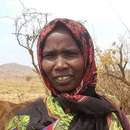
We brought three of them to the feeding center by lifting them
up as they couldn’t walk. After a few days of feeding, they are much better now. They can now stand on their own.
Together with partner organizations, we support thousands of households in the Borena zone in Ethiopia – including Ware's family. In several regions, WHH has set up animal feeding centers near water sources such as wells and ponds. Ware is now able to bring three of her remaining animals to one of the feeding centers in her small village of Dijaresa.
"Five rainy seasons and not a drop of rain"
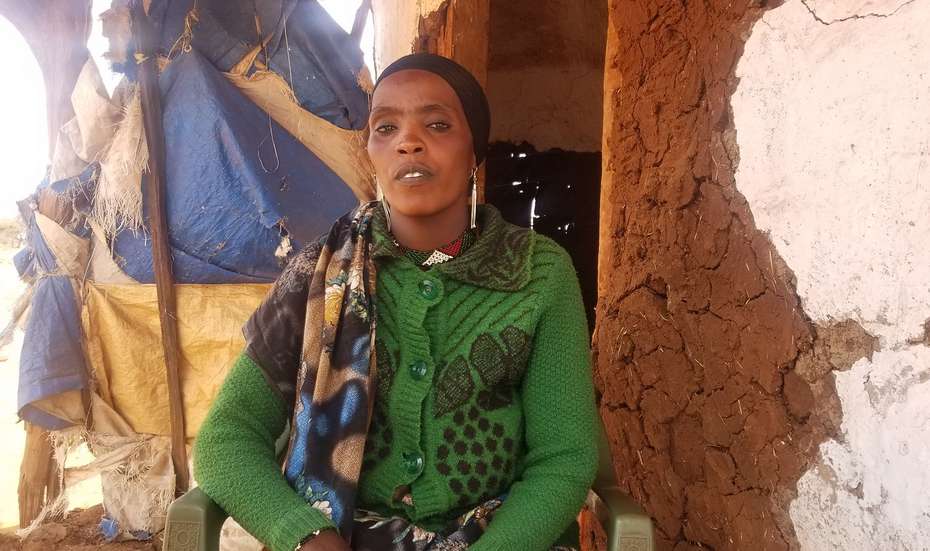
Like Ware Tuka, 25-year-old Tiru Girma used to be able to feed herself and her three children. Before the drought, Tiru had a large herd of cattle and grew corn and beans. Due to ongoing drought, her animals have died, and her plot of land in Dijaresa village has dried up. Thus, the small family suffers from hunger and thirst: "I have lost the 30 animals that I had due to the drought. There is no drop of water that we can drink here. We must travel for three hours to able to get water."
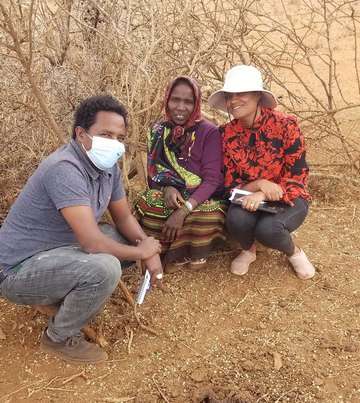
Tiru's youngest child is only one year old and malnourished. WHH has included the family in an emergency aid program, which provides Tiru with cash. With food prices rising in Ethiopia due to inflation and the Ukraine war, Tiru is grateful for the support: "I can at least buy milk to feed my small baby."
More help is urgently needed
Gemechis Bekele is a coordinator at WHH's partner organization, Action for Development. According to his assessment, the support on the ground is achieving a lot, but more is needed. Because of the great need, the central feeding stations can only adequately supply some of the animals. In the small village of Marmora, for example, WHH and the local partner organizations Action for Development and Mothers and Children Multisectoral Development have so far only been able to reach 36 of the 400 households.
So far, the measures have proven to be very effective, he confirms. The animals that can be cared for in the feeding centers are doing much better than the others – you can even see that directly. That's why many facilities already consider them a best practice. "The need is beyond comprehension," Bekele cautions. "We need to speed up, strengthen and expand our interventions."
How WHH is helping in the Borena Zone in Ethiopia
- We have supported nearly 2,000 selected households with cash, seeds, and livestock protection.
- So far, we have provided better access to water and hygiene for about 8,000 households by rehabilitating water systems and distributing soap.
- Over 10,000 malnourished children under five are being screened and cared for.
- We have reached 35,000 people through Communits meetings, where we can impart knowledge about health and nutrition while strengthening social cohesion.





